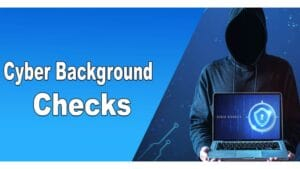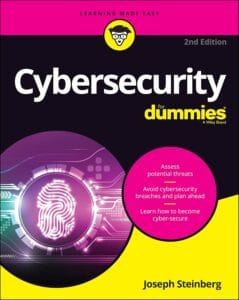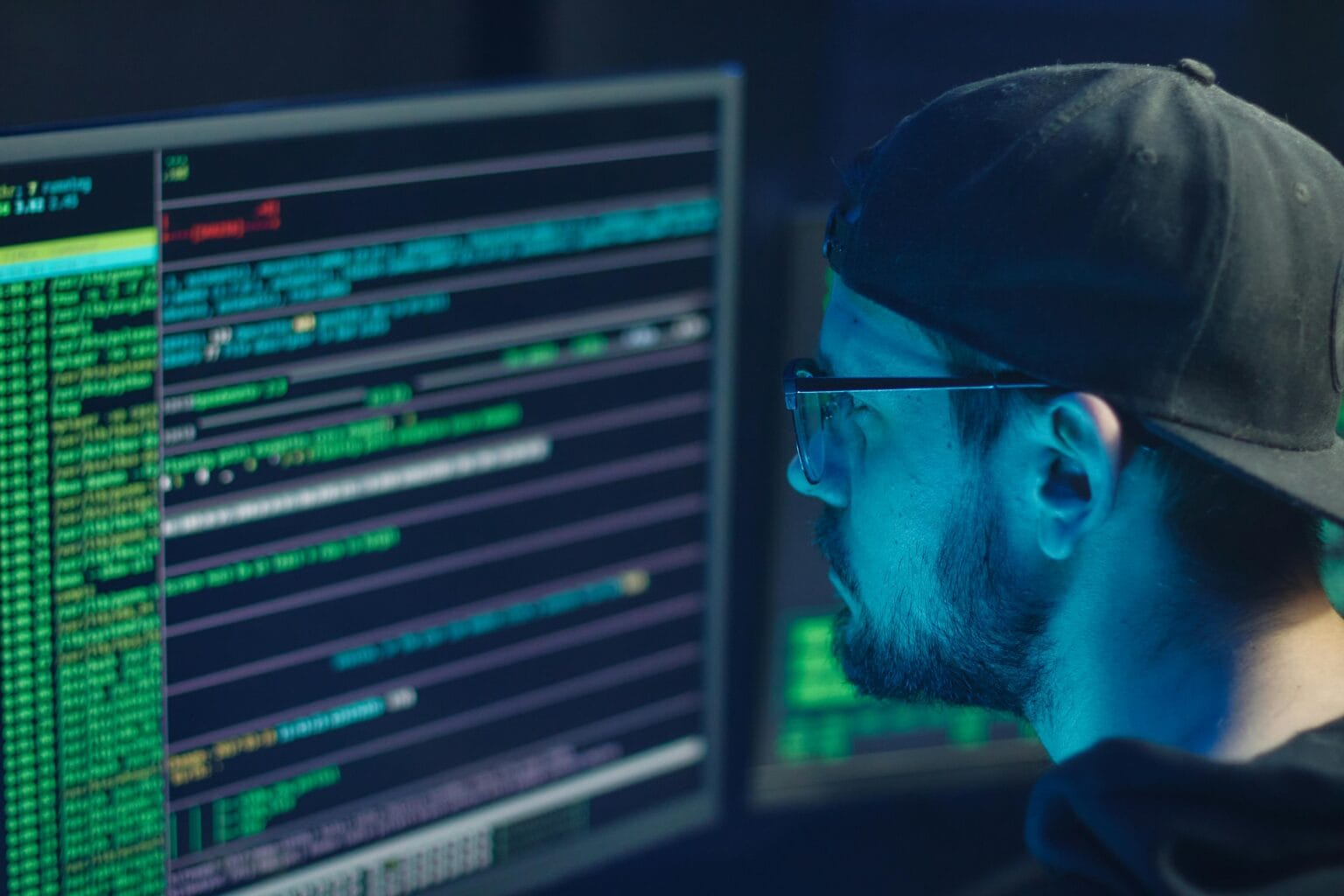Everything You Need to Know About Cyber Background Checks

Cyber Background Checks: Protect Your Online Reputation and Privacy
Cyber background checks vetting or cyber profiling are remarkably analogous to personality profiling and they involve activities on social media platforms, search history, light web, and potentially the dark web. These are important to know today because they expose far more than simpler approaches, affecting the subject’s reputation and job prospects.
- What Does Cyber Background Check Imply?
- Components of a Comprehensive Cyber Background Check
- Methods Used for Cyber Background Checks
- Cyber Background Check: Who and Why?
- Benefits of Conducting Cyber Background Checks
- How to Keep Your Own Digital Profile Safe?
- FAQs
- Conclusion
What Does Cyber Background Check Imply?
A cyber background check is thereby the process of assessing someone’s cyberspace, comprising social networks, activities on social networks, digital footprint, and any information that can be found on the dark web. It helps assess a person’s online behavior and reputation.
Some of them are DA best practice analysis, which concerns online activities and reputation scanning, which involves a concern with the manner in which a certain person is viewed given their past activities. Traditional background checks usually entail screening for criminal records, credit records, health status, and employment history cover sheets; cyber background checks, on the other hand, cover a wider perspective of an individual’s behavior in cyberspace.
Components of a Comprehensive Cyber Background Check
A comprehensive cyber background check includes several critical components that provide a detailed view of an individual’s online identity:
Social Media Analysis: Evaluates social profiles for public posts, comments, and connections. Employers and individuals assess behavior, opinions, and affiliations that could impact reputation. Even seemingly harmless posts can influence perceptions, affecting personal and professional opportunities.
Online Presence & Digital Footprint: Reviews all digital traces, like blog posts, comments, and media appearances. This footprint can reveal habits, interests, and even sensitive details about your life. Using the tracker, one can realize what may contain dangerous information that might harm the image.
Dark Web Monitoring: Signs up for the latest data leaks that include passwords, Social Security numbers, or bank information. Such surveillance is necessary to avoid any type of identity theft and to minimize potential economic or even financial losses and reputational losses caused by data leaks or cyber criminals.
Criminal and Civil Records in the Digital Age: Used in the construction of the background check process and afforded easy access to online records. It includes arrests, court cases, and civil disputes. However, legal limitations and privacy concerns exist, as access to some records may be restricted or could breach data protection laws, emphasizing the need for ethical compliance.
Methods Used for Cyber Background Checks
Cyber background checks use a combination of automated tools and manual assessments to gather and analyze online information.
Automated Tools vs. Manual Assessments
Technology allows independent access to masses of information on web pages, social platforms, and records. They identify relevant information efficiently but may lack context. Manual assessments, performed by analysts, provide a deeper understanding, verifying and interpreting the data for accuracy.
Data Aggregation Techniques:
These techniques compile information from various online sources into a cohesive profile. This includes scraping public records, scanning social media activity, and collecting online mentions. Aggregation ensures every detail is noticed, although it requires careful handling to maintain data integrity.
The Role of Artificial Intelligence:
AI brings, in particular, the optimization of real-time pattern analyses and risk identification in the course of cyber background checks. It can predict reputational issues but may also introduce biases, requiring human oversight for fair evaluations.
Ethical and Legal Considerations:
Conducting cyber background checks must align with privacy laws and ethical guidelines. Failure to apply proper usage of personal data might be a contravention of regulations like the GDPR. Sustainable behaviors maintain persons’ liberties and formalize the relationship between free access to information and privacy.
Cyber Background Check: Who and Why?
Cyber background checks are used by various groups for safety and informed decision-making.
Employers and hiring managers: These checks are used for screening the job applicants and to see if any bad reputation could damage the company. In this way, employers ensure that potential employees are not toxic to the company and guarantee the enterprise’s culture and brand image.
Law Enforcement Agencies: These agencies use cyber checks to get important information when conducting investigations. Digital footprints can reveal connections or activities related to crimes, helping solve cases efficiently.
Individuals for Personal Safety: People may perform cyber background checks on new acquaintances or potential partners. This helps ensure safety by uncovering hidden aspects of someone’s digital life, like alarming posts or data breaches, before making commitments.

Benefits of Conducting Cyber Background Checks
Cyber background checks offer numerous benefits, enhancing both security and decision-making:
Fraud Prevention and Security: Such checks enable organizations to determine possible risks as they reveal fraud, leakage of sensitive information or with62 mal intentions associated with an individual’s account. Such a strategy lowers the chances of a security risk and instances of loss.
Informed Hiring Decisions: A candidate also has a way of portraying himself or herself online, and this can be of benefit to employers in that they can be in a position to evaluate the digital reputation of the particular candidate they are hiring for their company. Scouring social media and online presence gives a more accurate insight into someone’s personality type; a candidate might not be the best fit due to their beliefs that interlope with organizational conduct codes.
Protecting Reputations: Protecting image has benefits for companies as well as for other members of society. Cyber background checks reveal damaging content that can be addressed early, ensuring a clean and professional digital footprint for career and social opportunities.
How to Keep Your Own Digital Profile Safe?
Protecting your digital identity is essential to safeguarding your privacy and reputation.
Manage Privacy Settings: Add and remove people from friend lists and custom lists to manage who can view your information. Restricting access minimizes the chances that someone will misuse or exploit the personal data of others.
Monitor Your Digital Footprint: Occasionally check your name on the internet to find out what you find if people search for you. Another tool that should be used to monitor the student’s personal spaces is Google Alerts to stay in touch and cover threats of malicious posts or data leaks.
Use strong passwords and enable two-factor authentication: Use different and strong passwords for different accounts and enforce the use of 2FA to ensure additional security. It also lowers the method where other people can hack into your account despite knowing your username and password.
Be Cautious About Sharing Information: Do not share much information about yourself on the Internet. Do not post personal information that may lead to the risk of identity theft or bring some harm to your reputation at work.
FAQs
What is the difference between a traditional and a cyber background check?
Traditional checks review records; cyber checks analyze online activity, social media, and digital presence for deeper insight.
Is social networking an essential risk factor for job endangerment?
Yes, untoward or vulgar images can destroy one’s image and possibly lead to withdrawn offers of the job.
How can I know that my data is on the dark web?
Employ monitoring services as well as dark web scanners, which notify you when your information has been siphoned off.
Are cyber background checks legal?
Yes, but they must not infringe on privacy laws, ethical standards, or the rights of individuals.
How often can I check my digital footprint?
These are important reasons why people should review their digital footprints at least once every quarter to fix that which is wrong before it gets worse.
Conclusion
Cyber background checks play very important roles in the present era as they provide vital information concerning cyberspace activity. Measures to be taken by an individual include timely and informed action on one’s digital identity to ensure privacy, security, and a favorable reputation, apart from other benefits.



